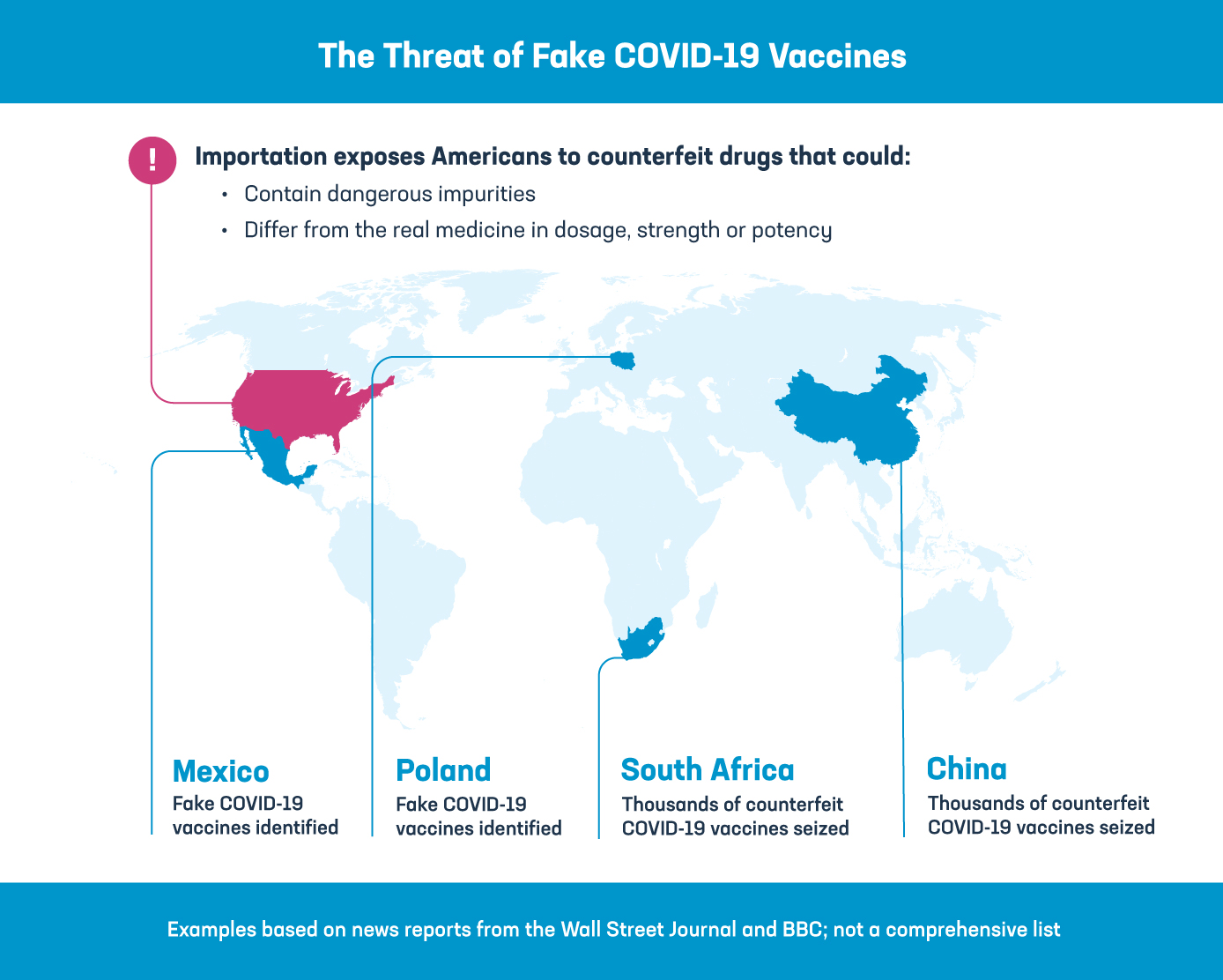Why drug importation is bad for Americans
We must work to lower what patients pay for their medicines AND make sure patients are getting the medicines they need, safely.

Why drug importation is bad for Americans.
We must work to lower what patients pay for their medicines AND make sure patients are getting the medicines they need, safely.

Why drug importation is bad for Americans.
Drug importation schemes are dangerous and have significant negative consequences for both individuals and our health care system. Importation refers to when governments or individuals circumvent the U.S. Food and Drug Administration’s (FDA) regulatory review and approval process to acquire unapproved prescription drugs from other countries outside of our secure drug distribution system. Without proper FDA oversight and enforcement of laws designed to protect patient safety, which importation schemes undermine, there is increased potential for unsafe counterfeit, substandard or adulterated products to infiltrate the U.S. pharmaceutical supply chain, putting people in harm’s way.
Counterfeits may look like real medicines, but they can contain dangerous impurities like mercury, lead and even the powerful opiate, fentanyl. They may differ from the real thing in dosage or strength, their potency may be degraded, or they may not contain an active drug ingredient at all. Patients around the world, including in the United States, have died from taking contaminated fake medicines purchased online without a doctor or pharmacist’s supervision. The only vaccine or medicine you should take is one prescribed by your health care provider and dispensed by a licensed U.S. pharmacist.
Counterfeiting is a problem that never goes away. Most recently, the COVID-19 pandemic created new opportunities for criminal counterfeiters to take advantage of unwitting patients seeking prescription treatments and vaccines. Fake COVID-19 shots have been identified in Mexico and Poland, with one batch of “vaccines” containing anti-wrinkle cream. Police in China and South Africa seized thousands of doses of counterfeit COVID-19 vaccines in 2021 alone. The pandemic created a new space for criminals to take advantage of people, and criminal organizations are getting smarter and using social media to target potential victims.

In 2021, both the Drug Enforcement Administration (DEA) and Department of Justice (DOJ) issued alerts on the growing threat of counterfeit medicines. The DEA issued a warning about the rising number of counterfeit drugs containing a synthetic opioid in the United States. The DOJ caught a scheme that sold millions of dollars’ worth of dangerous prescription medications that were illegal to be sold in the United States. These imported drugs circumvented the FDA and involved fake companies and websites. These recent alerts reinforce that we should not be undermining the closed, FDA-regulated drug distribution system. As Special Agent in Charge Mark S. McCormack, FDA Office of Criminal Investigations Metro Washington Field Office stated, “When prescription drugs from outside FDA’s secure supply chain enter the U.S. marketplace, patients are put at risk.”
Despite this, personal, as well as wholesale, importation schemes are under consideration by some policymakers, which would make it easier for criminals to transport adulterated or counterfeit vaccines and drugs to unsuspecting consumers in the United States. In October 2020, the FDA published a final rule permitting commercial importation of certain drugs from Canada, the legality of which is the subject of a pending lawsuit brought by PhRMA, the Partnership for Safe Medicines and the Counsel for Affordable Health Care in U.S. District for the District of Columbia.
We must work to lower what patients pay for their medicines AND make sure patients are getting the medicines they need, safely. There’s a way to do both, but importing unsafe drugs isn’t the answer. Learn more about the dangers of importation.